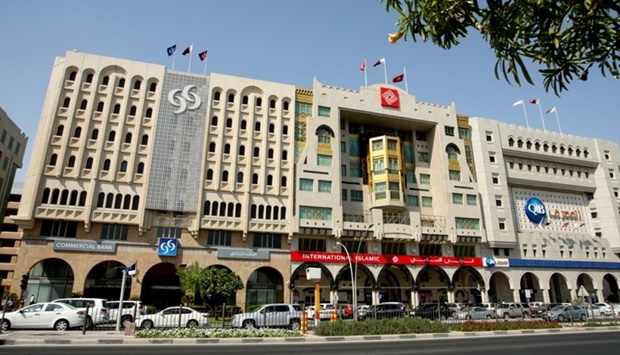Qatar banking sector is demonstrating resilience post-pandemic and its short to mid-term outlook looks "positive" with interest margins remaining in the comfort zone and being highly capitalised, far exceeding both local statutory and Basel requirements on capital adequacy, according to PricewaterhouseCoopers (PwC) Middle East.
“Despite the effects of the pandemic, the banking sector in Qatar has shown strong performance in 2021. To promote this long-term stability, we expect the sector to embrace new technology, ESG (environment, social and governance) and ethical banking. The Covid-19 pandemic played an important role in challenging banks to accelerate their digital transformation and sustainability efforts," said Ahmed AlKiswani, Qatar Financial Services Leader, PwC Middle East.
Finding that banking institutions across Qatar are "well positioned" with their liquidity, stability, and earnings" to embrace this change, he said they must act swiftly in aligning their operating models to fully internalise the latest trends and remain in line with their global and regional peers.
On profitability, the report said interest margins remained in the "comfort" zone, including leveraged benefits of funding diversification, and assured strong top-line growth.
Banks have also been very successful in driving down funding expenses and managing costs that highlight the growing momentum of continuous effort in efficiency optimisation, it said. Key bottom-line return indicators such as RoAA (return on average assets) and RoAE (return on averages equity) have seen solid mid-single digit dynamics across all major players suggesting top-line growth and cost management offset risk pressure, according to the report.
"Overall the short to mid-term financial outlook looks positive but should be carefully managed to safeguard the banking sector’s strength and secure recovery," it said, adding most incumbents are yet to take any concrete and decisive action on their commitment to sustainable finance, making the best use of modern technology, responding to evolving customer demands and the competitive and regulatory landscape.
On stability, PwC Middle East said Qatari banks remain highly capitalised, far exceeding both local statutory and Basel requirements on capital adequacy.
Funding remained largely driven by customer deposits with certain banks successfully diversifying by wholesale financing with bonds, certificates of deposits and other debt instruments, it said.
On earnings, the report said while the market top-line remained largely flat, the sector managed to hit high singles in operating income growth and move into double-digit territory on bottom-line dynamics.
Revenue diversification towards non-interest driven income has not witnessed fundamental change as of yet, according to the report.
“Despite the effects of the pandemic, the banking sector in Qatar has shown strong performance in 2021. To promote this long-term stability, we expect the sector to embrace new technology, ESG (environment, social and governance) and ethical banking. The Covid-19 pandemic played an important role in challenging banks to accelerate their digital transformation and sustainability efforts," said Ahmed AlKiswani, Qatar Financial Services Leader, PwC Middle East.
Finding that banking institutions across Qatar are "well positioned" with their liquidity, stability, and earnings" to embrace this change, he said they must act swiftly in aligning their operating models to fully internalise the latest trends and remain in line with their global and regional peers.
On profitability, the report said interest margins remained in the "comfort" zone, including leveraged benefits of funding diversification, and assured strong top-line growth.
Banks have also been very successful in driving down funding expenses and managing costs that highlight the growing momentum of continuous effort in efficiency optimisation, it said. Key bottom-line return indicators such as RoAA (return on average assets) and RoAE (return on averages equity) have seen solid mid-single digit dynamics across all major players suggesting top-line growth and cost management offset risk pressure, according to the report.
"Overall the short to mid-term financial outlook looks positive but should be carefully managed to safeguard the banking sector’s strength and secure recovery," it said, adding most incumbents are yet to take any concrete and decisive action on their commitment to sustainable finance, making the best use of modern technology, responding to evolving customer demands and the competitive and regulatory landscape.
On stability, PwC Middle East said Qatari banks remain highly capitalised, far exceeding both local statutory and Basel requirements on capital adequacy.
Funding remained largely driven by customer deposits with certain banks successfully diversifying by wholesale financing with bonds, certificates of deposits and other debt instruments, it said.
On earnings, the report said while the market top-line remained largely flat, the sector managed to hit high singles in operating income growth and move into double-digit territory on bottom-line dynamics.
Revenue diversification towards non-interest driven income has not witnessed fundamental change as of yet, according to the report.


